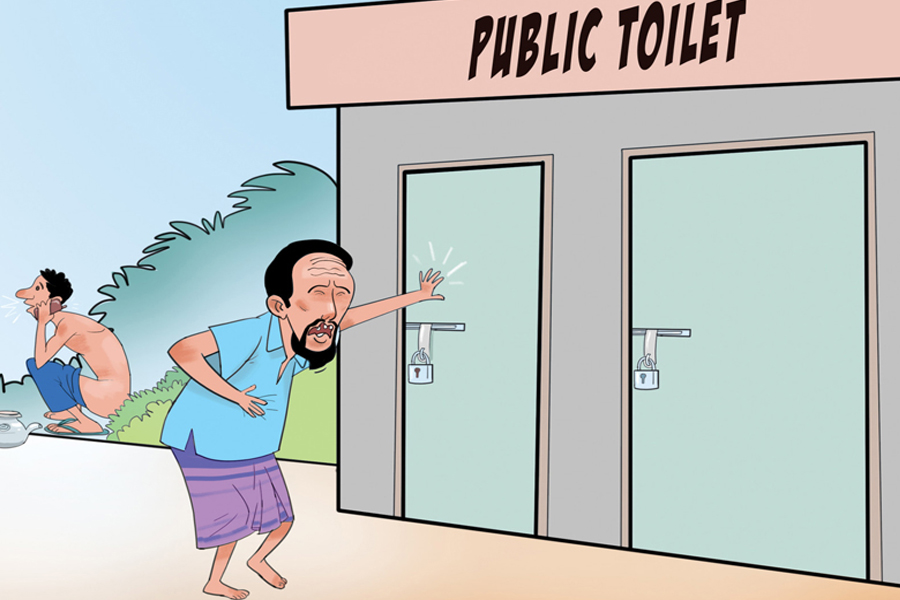
Published :
Updated :

Dhaka, the capital and largest city of Bangladesh, is supposed to be the most developed and well-maintained city in the country. But the reality is quite the opposite. Garbage and faeces are often seen left on roads, footpaths and other open spaces. It is so common that people no longer object to such ugly sights.
The authorities concerned pay little to no attention to keeping the roads and footpaths of the capital clean. Almost every other road or footpath is found to be fouled with human faeces, making the whole of Dhaka comparable to a big public toilet and posing serious health and sanitation risks to residents. The lack of public toilets is one of the main reasons for this. As one of the most densely populated cities in the world, there should have been a lot more public toilets. Even where there is one, it is costly to use for the people who barely get to keep themselves fed. Although these public toilets indeed need to be maintained, which costs money, the city authorities should bear most of the cost instead of fully relying on the people who use the toilets. Less fortunate people usually find it more logical to relieve themselves in open places.
There is also the fact that some areas of Dhaka, particularly the old parts, still lack a proper sewer system, making many houses release human waste to the drainage system. When it rains or pipelines clog --- a common occurrence in many areas, drains overflow. This not only floods streets but also deposits human waste on the roads.
As Dhaka is our megacity, many foreigners come here for various purposes. The sight of piled-up garbage and human waste-filled roads cause a sense of revulsion in them in the process our country's image is seriously compromised. Bangladesh has much more to offer than what the outside world thinks, but they get overshadowed by the negatives, such as these sanitation problems. These make the foreigners think poorly of the people here. The government and all other stakeholders should realise it and take all necessary steps to improve the situation.
Having human waste out in the open has many health complications. It contains many harmful pathogens such as E. coli, Salmonella, and parasites. These are very harmful to humans and can cause many diseases, including diarrhoea. People often step on the waste unaware and walk back home, which spreads these pathogens. Birds and insects eat the waste and fly around spreading the pathogens. Some of these pathogens are spread by air too.
The authorities need to start paying attention to these issues and take necessary actions to solve them. Building more public toilets, allocating more money for maintaining them, ensuring a proper sewer system and preventing people from using the drainage system as the sewer system are some of these steps. Public toilet charge should be lowered to inspire people to use them instead of relieving themselves in open spaces.
Taking actions against the people who use the drainage system instead of the sewer system to release human waste is also crucially important. People should be made aware of the negative impacts of defecation in open places and the unhygienic release of human waste and the necessity of prompt cleaning to beat the sanitation issues.
rahmansrdk@gmail.com


 For all latest news, follow The Financial Express Google News channel.
For all latest news, follow The Financial Express Google News channel.